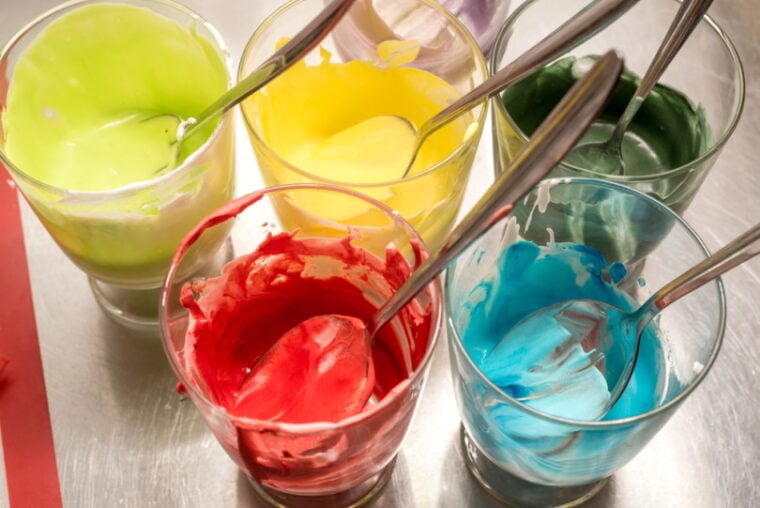
[ad_1]

Food coloring has always played a role in the food industry for multiple reasons. It makes processed food look more appealing, as the food tends to lose its natural coloring during processing. Food coloring would also help cover up the fact that food was old or inferior in some way. Nowadays, food coloring is not only added to commercially processed foods but is also utilized in homes throughout the world to color food that is prepared in the kitchen. For instance, many people choose to color cake frosting so it isn’t white and boring.
So, if food coloring can be safely used in human food, is it safe for dogs? Let’s explore the matter here!
The Past and Present of Food Coloring
Before 1906, food producers would use food coloring made of things like coal tar to mask imperfections and unappealing colors that developed during the production process. Coloring made from coal is not healthy for anyone, so in 1906, the FDA passed what is referred to as the Food and Drugs Act. This Act prohibited the use of poisonous colorings in food, so coal-derived food coloring was abandoned for the most part in favor of petroleum-derived options.
While it might seem that petroleum is just as harmful as coal, no traces of petroleum are left behind in the food coloring once it has been processed. Food coloring is rigorously tested to ensure that the final products are safe for human consumption.

Food Coloring Is Routinely Added to Commercial Dog Food
Food coloring is routinely added to commercial dog food simply to make it more eye-appealing to humans. Dogs don’t really care what their food looks like as long as it tastes good to them. The FDA does allow for food coloring to be added to dog food in certain amounts that are thought not to harm a dog’s health in any way. That said, food coloring offers absolutely no nutritional value to dogs.

Should You Add Food Coloring to Homemade Dog Food and Treats?
If you make your dog homemade food, snacks, or treats, you may be tempted to add food coloring so the food is more appealing. The truth is that food coloring does not make food more tempting to dogs because they don’t perceive colors the same way that we do. So, there is no need to add food coloring to any food that you prepare for your dog. If you do decide to add food coloring, it’s a good idea to do it sparingly.

In Conclusion
Food coloring is not poisonous to dogs in today’s world, but it does not offer any health benefits either. Therefore, there is no need to add it to a dog’s food. The only reason that it is added to commercial dog food is to appease owners who must look at the food when providing it to their pets. If you’re worried about food coloring, you can choose a commercial food brand that doesn’t include coloring, but it will likely be more expensive than the average food found on store shelves.
Featured Image Credit: Yakov Oskanov, Shutterstock
[ad_2]
Source link


